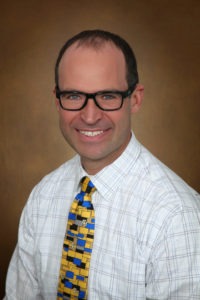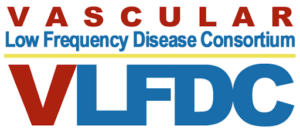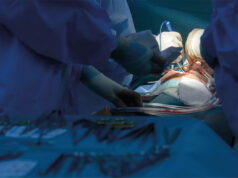
A new vascular surgery registry launched to leverage key data gathered in the thick of the COVID-19 pandemic—and aimed at helping prepare for the fallout from future outbreaks—has acquired Institutional Review Board (IRB) approval.

With members spread across 30 different countries and most states in the U.S., the Vascular Surgery COVID-19 Collaborative (VASCC): a retrospectively collected prospective international vascular surgery registry, is now ready to begin enrollment.
VASCC is the work of Robert F. Cuff, MD, assistant professor of surgery and integrated vascular surgery residency and fellowship program director at Michigan State University in Grand Rapids, and Max Wohlauer, MD, assistant professor of surgery-vascular at the University of Colorado in Aurora.
Another key piece of the puzzle saw VASCC team up with the Vascular Low Frequency Disease Consortium (VLFDC) led by director Peter Lawrence, MD, and associate director Karen Woo, MD, out of the UCLA department of surgery, Los Angeles.

The VLFDC investigates uncommon vascular diseases. As Wohlauer tells Vascular Specialist: “For 20 years, they’ve been looking at diseases that happen frequently enough that it’s really important vascular surgeons study them, but they don’t happen often enough that you can capture the data in something like the VQI [Vascular Quality Initiative]. These could be vascular problems that occur six to 12 per year in a big academic center. So, for 20 years they’ve been pooling data from the centers across the country and around the world to look at what they call low frequency diseases. We’re fortunate enough to team up with them to help us build our registry and network in a really thoughtful and sustainable manner.”

The idea for VASCC grew out of a new WhatsApp group set up by Wohlauer to provide peer-to-peer support for the vascular surgeon community as the novel coronavirus strain grinds the specialty to a virtual halt.
“This pandemic is nothing we have dealt with in our careers and for the most part people haven’t seen something like this in our lifetimes,” explained Cuff. “As it spread around the world, we noted in the vascular surgery world, along with the other areas of medicine, we were having to make pretty dramatic changes in our day-to-day function.
“Initially, we started off by thinking about what was going to happen with patients who are canceled and have to be delayed because we didn’t know how long it was going to be; we didn’t know when they would get their surgeries rescheduled. Obviously, they were being scheduled for surgery because it was felt there was something that needed to be done fairly soon. So, as we started canceling these cases in our institution, we started looking at it to see what was going to happen if we delayed someone who had carotid disease and was scheduled to have their carotid fixed: Now, we’ve had to delay them potentially months depending on how long this lasts.”
Within the setting of the WhatsApp group, the idea of a registry started to crystalize. “It became apparent that the group would be a good opportunity to leverage that community to see what people thought about these issues,” continued Cuff. “It became pretty clear that all of us had the same concerns and we didn’t know what the best way to approach this was.
“The idea of this collaborative was born to try to leverage a large number of surgeons and patients so we can get enough data to really look at a lot of the questions around COVID-19, which has expanded beyond the initial discussion.
“We thought the best way to try and do this would be to try and get as much U.S. and worldwide experience collected in one spot. We’d have a large amount of data to start to go through and find out what we did that worked, or didn’t work—what would need to be changed in planning for future pandemic or future issues where this may come up again.”
The network into which they are plugging already exceeds 300 surgeons, Wohlauer revealed.
“This could really help us understand a lot of things,” he went on. “A lot of places are only doing emergency surgery because of the COVID surge or to protect personal protective equipment [PPE] and hospital beds. Another part is that there are specific vascular complications related to COVID. There’s a hypercoagulable phenotype that we’re seeing, and that’s something we’re also going to study. There are subsets to look at: For example, patients with end-stage renal disease. We’re not progressively putting in dialysis access—that’s not considered an emergency surgery. There are implications if a patient with end-stage renal disease gets a COVID infection: We could decimate an entire access center. So, there’s some controversies and things that, over time, we’re going to understand what the implications were. In the middle of it, right now, we can’t really trace that out.”
Cuff elucidates what that might yield. “Once all of the dust is settled,” he said, “we’ll go through and see what worked and what didn’t work. What I thought worked in my hospital with 10 patients may not turn out to be the best option when we look at 1,000 patients from around the world.”
“That will be what we hope this registry will be able to do for us—to answer some of the questions that are there now as well as the questions we don’t even know we have yet.”
To sign up for VASCC, either retweet the pinned tweet announcement through Wohlauer’s Twitter handle @doctormaxw, or email [email protected] directly.











